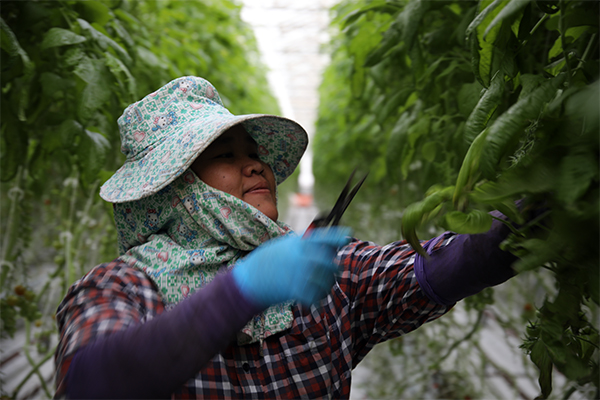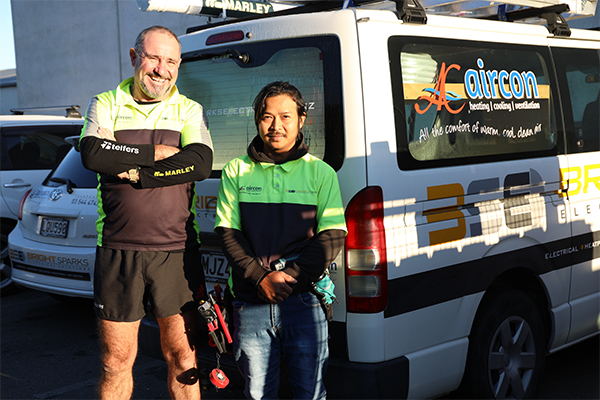Finalist

When refugees settle in a new country, meaningful work is an important part of finding stability, financial and emotional security, and regaining choice and control in their lives.
However, the lack of a tailor-made employment service in New Zealand meant former refugees were proportionally over-represented in beneficiary numbers five years after their arrival.
The New Zealand Red Cross, a member of the world’s largest humanitarian organisation, set out to change this with the establishment of Pathways to Employment (P2E), an expert employment service for former refugees that sits within its Migration Programmes.
P2E works in each of the 13 settlement locations across Aotearoa, connecting employers with prospective employees with refugee backgrounds.
National Programme Manager Jarrah Cooke says the goal is to find sustainable, meaningful work which matches well with the aspirations of each jobseeker and promotes their career development.
“The main benefit is that former refugees secure meaningful sustainable employment, enabling them to gain economic independence and to rebuild their lives in a new country. It provides an opportunity to use their existing skills, contribute to the local economy and community, and build social networks,” he says.
The work is informed by the government’s Refugee Settlement Strategy which includes self-sufficiency as a goal.
“Successful settlement and employment integration are mutually beneficial to the host community, through addressing skills shortages and providing additional diversity to the labour force, and the individual or family settling. Employment is both a marker of and a means to integration, making it key to achieving other settlement outcomes,” says Jarrah.
Former refugees face a significant number of challenges when it comes to looking for work. The majority are disadvantaged by limited English proficiency and, as new arrivals to Aotearoa, are not familiar with workplace culture and systems and have limited networks and support systems. They do not have local work experience and qualifications and can struggle to have previous experience and overseas qualifications understood and recognised. Many have gaps in their education and some lack a formal education.
“Externally, they face structural and other forms of discrimination based on age, gender, religion and possibly an employer’s unwillingness to culturally diversify their workforce. Job matching is challenged by regional market conditions and the random nature of resettlement allocations,” says Jarrah.
Expert help is provided by the P2E team that works alongside both the former refugees and employers. An employment assessor/advisor assesses jobseekers, prepares them for work and guides them through their pre-employment milestones. An employer liaison builds relationships with employers and supports both the employer and their new employee for up to six months post job placement.
Staff carry out a comprehensive assessment of each jobseeker to identify their gaols and to develop a pathway to help them achieve them.
“During all steps along their pathway, clients are supported by a cross-cultural worker from their own language group. This support enables both our client and their employer to understand each other’s culture which facilitates successful transition into sustainable and meaningful work,” says Jarrah.
Partnerships are an important part of the success of the programme and extensive sector networking is done throughout social services, employment providers, training and education institutes, and government agencies.
In the period between 2016 and 2021, P2E worked with 2077 jobseekers and 1825 were placed in employment. During a 2021 evaluation, former refugees said their jobs offered a sense of permanence, providing stability, security, a future, the ability to plan ahead, and to have choice and control in their lives.
“Working here has changed my life. Now I have a job and income. I have freedom,” wrote one employee.

Another appreciated the way employment enabled them to give back.
“When you work, you have a better economic position. It’s not good to depend on the benefit for a living. Once you start working it changes your life and you’re able to give back.”
Jarrah says the evaluation showed having a job significantly contributed to positive settlement outcomes for former refugees and their families.
“Being employed influenced settlement in many ways including becoming independent, economic and social reciprocity, socialising through work and meeting new people in new places meaning they were not isolated or benefit dependent. Former refugees felt they gained self-respect and were respected for their work. They bonded to a place and people and, most importantly, they had choice. Being able to choose is empowering and enjoyable.”
Employing refugees has also been a positive experience for the companies and individuals who work with P2E providing employment opportunities.
“Former refugees bring cultural, social diversity and richness to workplaces. Their experiences mean they can offer value, skills and insights to Kiwi businesses,” says Jarrah. “Investment in the employment and training of former refugees produces a more culturally aware workforce. This, in turn, allows for more creativity and increases a business capacity for innovation.”


